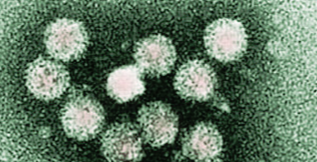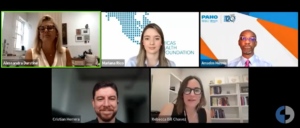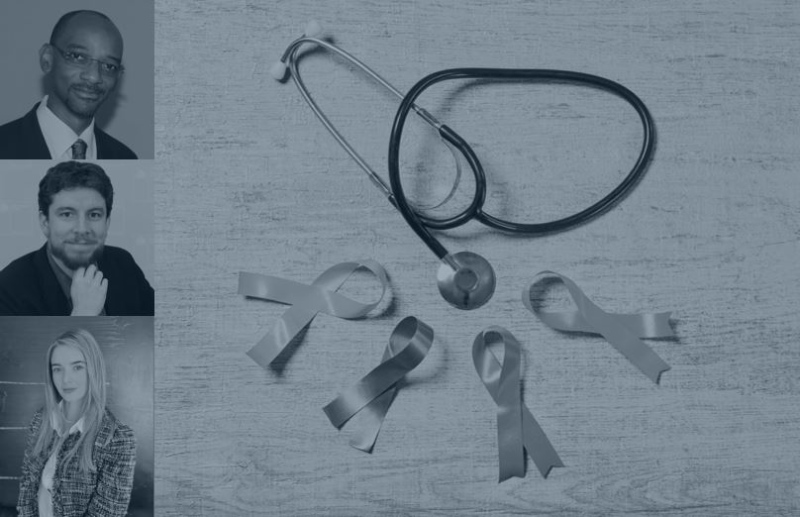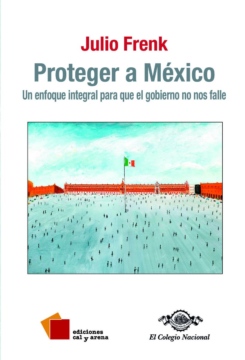
Is Hepatitis C the New Health Priority for the Americas?
How big of a problem is hepatitis C in Latin America? What kinds of efforts should countries and the private sector make to fight it?
On July 26, 2022, the Inter-American Dialogue hosted a public event titled “Cancer and Covid-19: New Challenges to Controlling Cancer in Latin America and the Caribbean.”
The event featured commentary from a panel consisting of Anselm Hennis, director of the department of noncommunicable diseases and mental health at the Pan-American Health Organization (PAHO); Cristian Herrera, senior health specialist in the health, nutrition and population global practice at the World Bank; and Mariana Rico, regional medical director of the Americas Health Foundation. Opening and closing remarks were given by Rebecca Bill Chavez, and the discussion was moderated by Alessandra Durstine, CEO of Catalyst Consulting Group.
Rebecca Bill Chavez began by offering opening remarks, emphasizing how the Covid-19 pandemic has caused interruptions to cancer screening and treatment, leading to higher cancer mortality rates. Some 80 percent of people living in Latin America and the Caribbean have experienced interruptions in cancer care and preventative activities due to the increased stress placed on countries’ health systems. She underlined the importance of health system improvements in order to avoid similar interruptions in future crises.
Following introductions from Alessandra Durstine, Cristian Herrera began the discussion by describing how the World Bank has employed a health systems approach to identify the systemic weaknesses that have led to the present problems with cancer care. Among these systemic weaknesses are insufficient prioritization of prevention, the fragmentation of healthcare systems along public/private lines, low public spending, lack of data, poor quality of care and weak resiliency. He outlined how each of these factors has contributed to the current crisis in cancer care; for example, how low public investment has placed the financial burden of expensive cancer treatment drugs on private households, which are oftentimes unable to pay. Herrera especially emphasized how resiliency differs from strength, with resiliency referring to a health system’s ability to continue functioning despite shocks and interruptions, such as pandemics, natural disasters, or conflicts.
“A health system that is strong is not the same as a health system that is resilient. These are two different concepts. The first five points that I mentioned relate to strong health systems, but this doesn’t mean that this kind of system will be resilient […] When a shock impacts a country in general, like a pandemic, a natural disaster, or a conflict, health systems must be able to cope with it. This requires a different set of policies, a different set of skills.”
Anselm Hennis built on Herrera’s explanation of the systemic weaknesses underlying the issues in cancer care throughout Latin America and the Caribbean. First and foremost, Latin America is the most unequal region in the world, with the top ten percent earning 22 times more than the bottom quintile. As a result, there are massive disparities in access to healthcare and other public goods. He also explained how resources were diverted from primary care to fighting Covid-19, creating large interruptions in many aspects of cancer care, with the most-affected area being screening services.
Hennis then delved into the type of technical support that PAHO has been offering to ministries in order to improve long-term cancer outcomes. He cited the Global Childhood Cancer Initiative, an effort to eliminate cervical cancer by increasing screening and vaccinations against HPV, and the Global Breast Cancer Initiative. PAHO supports these initiatives by collecting extensive data and offering best practices to countries so that they can make the most efficient changes to improve their health outcomes. On the note of childhood cancer, Hennis emphasized that economic disparities lead to drastically different results, with high-income countries having much higher cure rates for pediatric cancer. He also noted that the pandemic caused many people to abandon their cancer treatment, since those living in rural areas were not able to stay away from home for the entire course of treatment.
“In high-income countries in the region, more than 80 percent of children with pediatric cancers will be cured. In low- and middle-income countries the cure rate is around 20 percent.”
Mariana Rico described how cancer care has been interrupted by the pandemic and the negative impacts that are starting to emerge as a result of this. The Americas Health Foundation has performed a study that has confirmed that the pandemic caused interruptions in cancer care across the region, leading to pent-up demand for treatment. However, she took care to explain that even prior to the pandemic, Latin America and the Caribbean faced a number of structural issues in terms of cancer care, and the pandemic has only exacerbated them.
According to Rico, the interruptions in cancer care have been felt in three main ways: cancer mortality, continuity of cancer services, and economic impact, with 93 percent of oncologists reported an increase in patients with advanced stages of cancer due to pandemic-related delays, leading to limited treatment options and unnecessary deaths. Accordingly, 87 percent of physicians reported an increase in patient mortality, which is linked closely to the interruption of prevention and screening programs, which alongside surgeries were the areas of cancer care that saw the greatest reduction during the pandemic. Though negative outcomes were present across the board, women were disproportionately affected in nearly every country surveyed. Half of the economic losses in healthcare during the pandemic came from screening and treatment associated with breast and cervical cancer. Plus, the pandemic had a big impact on caregivers, who had to make immense adaptations to continue working while preventing infections, and in many cases lost their jobs.
[caption id="attachment_127125" align="alignright" width="300"] L-R: Alessandra Durstine, Mariana Rico, Anselm Hennis, Cristian Herrera, Rebecca Bill Chavez[/caption]
L-R: Alessandra Durstine, Mariana Rico, Anselm Hennis, Cristian Herrera, Rebecca Bill Chavez[/caption]
Herrera noted that advocacy and civil society organizations have been making themselves more visible recently at both the micro and macro level. At the micro level, advocacy groups and civil society organizations have helped to connect patients and citizens with doctors and healthcare resources and overcome the distrust of institutions that is unfortunately common in the region. On a bigger scale, advocates have engaged the legislative process and driven reforms to improve care, for example with the Ley Ricarte Soto in Chile, which has lowered the cost of expensive cancer medications.
When asked about how PAHO chose the initiatives it did, Hennis explained that the organization wanted to address areas of cancer care that have historically not received as much attention, namely cancer affecting women and children. He added that cervical cancer was specifically targeted because it is one of the cancers that can be wiped out completely with HPV vaccinations and treatment if it is caught early. He also spoke to the need for investment and how the PAHO strategic fund has made high-cost medications more available throughout the region.
Rico seconded Hennis’ call for more funding, explaining that legislative progress is necessary, but not sufficient for improving the regions’ health systems. She also brought up the repressed cancer burden caused by the pandemic and pointed out that without targeted action to address it we will continue to see elevated rates of cancer mortality. Her final prescription to improve cancer care and health systems in the region is to advance public-private partnerships and better integrate different sectors, including civil society and academia, into health care systems in order to improve their resilience.
“If we don’t recognize this pent-up demand and continue as if [the pandemic] had not happened, we will very likely continue to see the negative repercussions on patient outcomes and the sustainability of health systems.”
During the audience Q&A portion of the discussion, Hennis was asked by a journalist if PAHO’s target of 90 percent HPV vaccination in the region by 2030 should be revised given the burdens placed on health systems, to which he not only responded that the target should be kept, but that more effort and resources should be put in to address the repressed demand for cancer care generated by the pandemic.
Herrera concluded the discussion by putting forth his policy prescriptions to build more resilient health systems. He added to Rico’s previous point about sector integration, especially recommending more public-private partnerships to reduce systemic fragmentation. Additionally, Herrera recommended that we learn lessons from the pandemic to improve care in general, for example by further implementing tele-health where it has been successful. Finally, he added that he hopes that governments will continue to work to reduce the consumption of items that pose long-term health risks, like tobacco and alcohol, which have risen in use during the pandemic despite high taxes and health warnings on packaging, resulting in some backsliding on goals.
How big of a problem is hepatitis C in Latin America? What kinds of efforts should countries and the private sector make to fight it?
Dr. Julio Frenk, president of the University of Miami, has published a new book titled Proteger a Mexico: un enfoque integral para que el gobierno no nos falle, a case study of Mexico’s health care system.
How are Latin American and Caribbean nations coping with the spread of the new coronavirus?
 Main photo: Marco Verch via CC license
Main photo: Marco Verch via CC license

